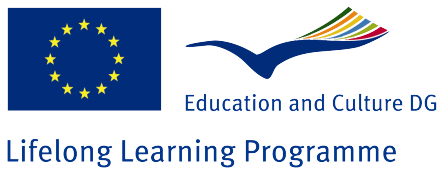Students level 4
Reading experience
Have some experience with demanding literary texts.Interests
Are interested in issues that go beyond their own experiences and interests.General knowledge
Have average general knowledge of the world and society and that allows them a more sustained opinion.Literary knowledge
Have knowledge of some narrative categories (characters, plot, perspective).Books level 4
Style
Stylistic diversity; expressive uses of language.Character
Characters and relations can be more ambivalent and diverse, less apt for identification.Action
Different rhythms of action: descriptions, reflexions, dialogues, monologues.Chronology
Several timelines, non-chronological storyline.Storyline(s)
Several storylines, not explicitly interconnected.Perspective
Several perspectives are acceptable if they are not too experimental.Meaning
Texts with a certain degree of ambiguity. Implicitness and ‘gaps’ ask for analysis and reflection.Transitions level 3»4
The transitions for this level focus on the following subjects:
Students level 3
Reading experience
Have experience with ‘good reads’ of popular and juvenile literature.Interests
Are interested in exploring the (unfamiliar) worlds presented in the books.General knowledge
Have some specific interests and they reach higher levels of specialised knowledge.Literary knowledge
Know some popular authors, also elementary narrative categories (e.g. time, place),Books level 3
Style
Offers literary language, including figuresCharacter
More complex, less predictable figures and relations are possible. Identification is important.Action
Action may be interrupted, and not always explicit. Open endings.Chronology
Flashbacks or anticipations, time shifts that can be implicit.Storyline(s)
Several storylines, not always explicitly interconnected.Perspective
Different perspectives that are not always clearly marked.Meaning
Different layers of meaning, moving beyond the I/self, towards the other(s).Transitions level 2»3
The transitions for this level focus on the following subjects:
Students level 2
Reading experience
Have some satisfactory reading experiences.Interests
Are mainly interested in concrete social problemsGeneral knowledge
Have basic knowledge which is mainly influenced by their own worlds and by school.Literary knowledge
Are more aware of genres and their own interests.Books level 2
Style
Simple language. Some basic figures of speech.Character
Characters and relations are well-developed, with predictable developments.Action
Engaging/Thrilling plot, suspense, possibly open endings.Chronology
Time shifts and shifts of perspective are clearly marked.Storyline(s)
Several storylines clearly interconnected.Perspective
Different perspectives that are clearly marked.Meaning
Simple, non-ambiguous ideasTransitions level 1»2
The transitions for this level focus on the following subjects:
Students level 1
Reading experience
Have fiction experience provided at least by school.Interests
Are interested in familiar universe of reference, also accept the fantastical world;General knowledge
Have knowledge related to young teenagers and their own world.Literary knowledge
Have an elementary genre expectation.Books level 1
Style
Simple, familiar and vivid languageCharacter
Few characters, close to the reader’s age and preoccupations. Relations are clearly marked.Action
Engaging/Thrilling plot, suspense. Closed and rewarding endingsChronology
Linear, but also sometimes shifts that stimulate suspense.Storyline(s)
Clear storylinePerspective
First person narrative or third person narrative.Meaning
Simple appealing themes for teenagers.Transitions level »»1
The transitions for this level focus on the following subjects:



